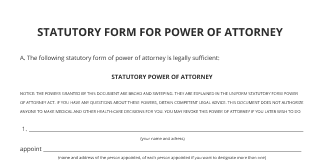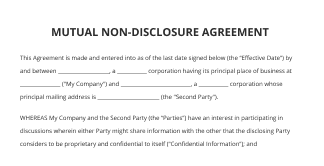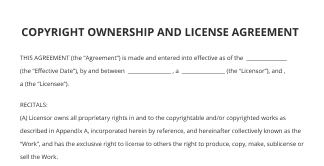Sign Credit Agreement Made Easy
Upgrade your document workflow with airSlate SignNow
Flexible eSignature workflows
Instant visibility into document status
Simple and fast integration set up
Sign credit agreement on any device
Detailed Audit Trail
Rigorous security standards
See airSlate SignNow eSignatures in action
airSlate SignNow solutions for better efficiency
Our user reviews speak for themselves






Why choose airSlate SignNow
-
Free 7-day trial. Choose the plan you need and try it risk-free.
-
Honest pricing for full-featured plans. airSlate SignNow offers subscription plans with no overages or hidden fees at renewal.
-
Enterprise-grade security. airSlate SignNow helps you comply with global security standards.

Your step-by-step guide — sign credit agreement
Using airSlate SignNow’s eSignature any business can increase signature workflows and eSign in real-time, delivering a better experience to customers and workers. Use sign Credit Agreement in a couple of simple steps. Our handheld mobile apps make working on the go possible, even while offline! Sign documents from any place worldwide and close deals in less time.
Follow the walk-through guide for using sign Credit Agreement:
- Sign in to your airSlate SignNow profile.
- Find your document in your folders or upload a new one.
- Open the record and make edits using the Tools menu.
- Drop fillable boxes, type textual content and sign it.
- Add numerous signers using their emails and set up the signing order.
- Indicate which recipients can get an completed doc.
- Use Advanced Options to limit access to the record and set up an expiry date.
- Press Save and Close when completed.
Additionally, there are more extended features accessible for sign Credit Agreement. Include users to your collaborative work enviroment, view teams, and monitor collaboration. Millions of consumers all over the US and Europe recognize that a solution that brings people together in one unified digital location, is the thing that organizations need to keep workflows functioning efficiently. The airSlate SignNow REST API enables you to integrate eSignatures into your application, internet site, CRM or cloud. Check out airSlate SignNow and enjoy quicker, easier and overall more effective eSignature workflows!
How it works
airSlate SignNow features that users love
See exceptional results sign Credit Agreement made easy
Get legally-binding signatures now!
FAQs
-
Does a credit card agreement have to be signed?
Any transactions made using the card after the new terms are received are subject to the new terms. Consequently, there is no signed agreement between the card issuer and the cardholder. A suit to collect the balance owed on a credit card account requires proof that the cardholder bsignNowed a promise to pay. -
Are credit agreements legally binding?
A credit agreement is a legally binding contract documenting the terms of a loan agreement. The credit agreement outlines all of the terms associated with the loan. -
Does the original credit card company have to provide a signed contract in a lawsuit?
According to Nolo, if the original creditor is filing a lawsuit against you, it must produce the original contact, preferably signed. Because credit cards are commonly issued online, a signed contract isn't always available. -
What is credit contract?
A consumer credit contract is a formal written agreement to borrow money, or pay something off over time, for personal use. You pay interest and fees for the use of the bank or finance company's money. ... credit sale (used to be called hire purchase) repaid over more than two months. -
Can a third party sue for credit card debt?
Common Defenses in Small Claims Cases (Third Party Collections) You have been sued in small claims court. The company suing you says that you did not pay a debt, like a credit card debt. ... If this information is not included, you can ask the judge to dismiss the case. -
What is a credit agreement UK?
What is a credit agreement? ... The lender should typically provide you with a credit agreement, which spells out the details of the deal, including your rights. Both you and the lender have to agree to the terms of the agreement in order to seal the deal. -
What is a card agreement?
A cardholder agreement is a document that a credit card holder receives detailing the terms and agreements of the card. ... The agreement includes the terms for all fees, such as an annual fee, a balance transfer fee, charges for closing an account, late payment and over-the-limit fees as well as any additional penalties. -
Do cell phone plans help build credit?
Good news: If you're among the 95 percent of people in the U.S. who has a cell phone, simply paying that bill may now help you add to your credit history. Cell phone bills can help build credit because you can now include them on your credit report. -
What happens if I don't sign a credit agreement?
If you haven't signed the credit agreement already then you don't owe anything. You can also cancel and return something you're paying off through hire purchase. If you want to keep the goods you'll need to pay for them another way. -
What are the three main types of closed end credit?
Generally, real estate and auto loans are closed-end credit, but home-equity lines of credit and credit cards are revolving lines of credit or open-end. Many financial institutions refer to closed-end credit as an installment loan or a secured loan. -
Can a restaurant charge you if you don't sign?
Depending on the server and establishment, you may or may not have a tip added if you didn't add one yourself. If you dispute the charge, the restaurant will produce the original receipt for what you ordered, as well as a copy of the receipt you did not sign. -
What is a policy of making loans that are unlikely to be repaid?
Match. credit. a medium of exchange that allows individuals to buy good or services now and pay for them later. predatory lending. a policy of making loans to high-risk borrowers who are unlikely to be able to repay; usually senior citizens, low-income individuals, and others who lack financial knowledge. -
What is a non enforceable debt?
If a debt is not enforceable it means that if a creditor tries to take you to court, you'll be able to defend the case and you won't get a CCJ. ... Some creditors, such as the DWP (Department for Work and Pensions), have legal powers which allow them to take money from wages or benefits without going to court. -
What happens if you don't pay a loan company back?
If You Don't Pay The result: You'll owe more money as penalties, fees and interest charges build up on your account. Your credit scores will also fall. It may take several years to recover, but you can \u200brebuild your credit and borrow again\u2014sometimes within just a few years.












































